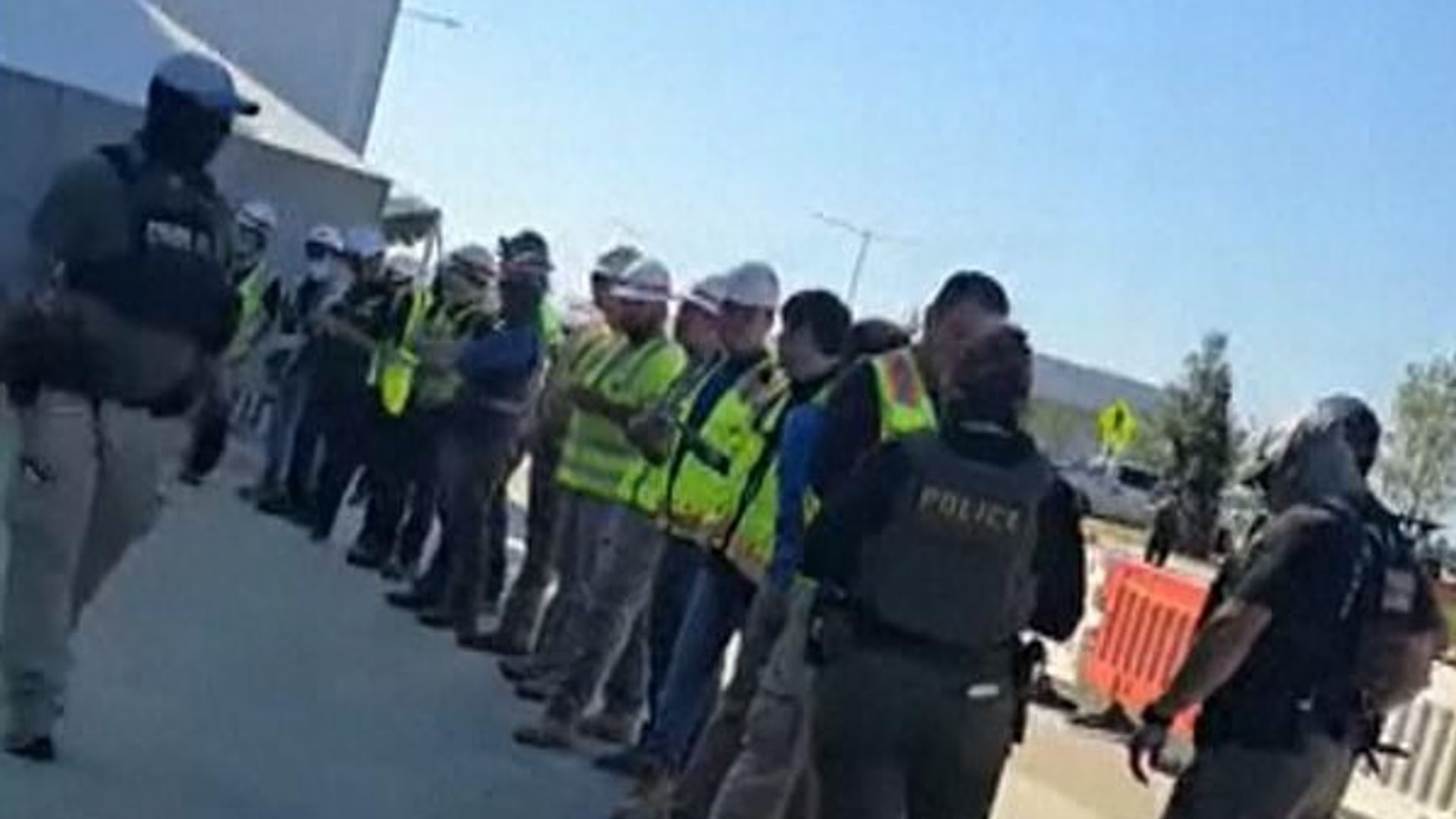![]()
The government’s director of international relations got her day in court, and she came out on top.
A magistrate ruled Monday that crown prosecutors had failed to provide sufficient evidence to prove that Najan Christopher broke the law in 2022 when she sent a letter requesting diplomatic immunity for then-premier Andrew Fahie five days after his arrest in Florida.
The decision marked a major victory for Ms. Christopher.
She has denied wrongdoing since her arrest in October 2022, and she pleaded not guilty to both charges against her: breach of trust by a public officer and false assumption of authority.
Her legal ordeal may not be over, however.
After Magistrate Khadeen Palmer upheld no-case submissions on both charges on Monday during a remote sitting held via Zoom, Director of Public Prosecutions Tiffany Scatliffe told the court she planned to appeal.
Later that day, Ms. Scatliffe’s office told the Beacon the appeal had been filed. In explaining the grounds for the appeal, the office described the magistrate’s decision as “unreasonable” and “erroneous on a point of law.”
“The legal evidence substantially affecting the merits of the case was rejected by the court,” the office added.
In the meantime, Ms. Christopher still holds the post of director of the International Affairs Secretariat, according to government Communications Director Karia Christopher.
Protracted trial
The magistrate’s Monday decision followed a multi-day trial that started in May 2024 and included testimony from high-profile figures including Premier Natalio “Sowande” Wheatley, Deputy Governor David Archer Jr. and Attorney General Dawn Smith.

During the proceedings, Ms. Scatliffe used witness testimony to suggest that Ms. Christopher breached the public’s trust by sending the diplomatic note against the advice of senior public officers including the attorney general.
But Jamaica-based defence attorney Terrence Williams — a former Virgin Islands DPP who once supervised Ms. Scatliffe — worked to paint a picture of Ms. Christopher as an experienced public officer who did her best to carry out her responsibilities during a chaotic period that followed the unprecedented arrest of a VI premier.
Ultimately, the victory went to Mr. Williams, who has successfully represented several high-profile clients in cases against the government in recent months.
Magistrate’s decision
In explaining her decision to uphold Mr. Williams’ no-case submission for the breach-of-trust charge, Ms. Palmer said Monday that the prosecution failed to show that Ms. Christopher was motivated by personal interest or acted dishonestly.
She added that there was no evidence that Ms. Christopher had improper intent or tried to conceal sending the diplomatic note.
The magistrate also cited evidence that no protocol existed to guide public officials in addressing the arrest of a premier abroad.
“To establish the criminal offence of breach of trust, more is required,” Ms. Palmer said.
For a conviction, she added, evidence would be needed to move the conduct in question from “the realm of administrative fault to that of criminal behaviour.”
The crown, she said, did not meet that bar.
The magistrate also upheld a no-case submission for the charge of false assumption of authority.
With both charges tossed out, no further charges against Ms. Christopher are pending, Mr. Williams told the Beacon.
Diplomatic note
The diplomatic note at the centre of the trial was printed on letterhead from the Office of the Premier and carried the stamp of the territory’s International Affairs Secretariat, which Ms. Christopher heads.
On May 3, 2022 — five days after Mr. Fahie’s arrest on cocaine-conspiracy allegations — the note was dispatched to the United States Office of International Affairs.
The next day, Mr. Fahie’s Miami defence attorney, Theresa Van Vliet, filed the note in a Miami court as part of an attempt to invoke head-of-government immunity.

Ms. Van Vliet argued at the time that Mr. Fahie was immune from arrest and detention in the US by virtue of his position as VI premier.
The note made a similar argument.
“The Office of the Premier of the Virgin Islands hereby further confirms that it is the official position of the government of the Virgin Islands that the Honourable Andrew A. Fahie, as the most senior member of the Cabinet, holds high ranking office in the Virgin Islands and on that basis immunity as recognised by international and domestic law, akin to heads-of-government immunity,” the note stated.
It added that Mr. Fahie had such immunity at the time of his arrest and that he had not waived it.
Finally, the note requested Mr. Fahie’s “immediate and unconditional release” and his “immediate return and free passage” back to the territory.
‘Rogue public officer’
But back in the VI, Mr. Wheatley, who was acting as premier in Mr. Fahie’s absence, alleged on May 4, 2022, that the diplomatic note had been sent by a “rogue public officer” without his knowledge or the knowledge of then-Premier’s Office permanent secretary Carolyn O’Neal-Morton.
Mr. Wheatley added at the time that the note did not represent the VI government’s official position, and he said that Ms. O’Neal-Morton was working with Mr. Archer to investigate the matter.
The following week, however, Mr. Wheatley confirmed that Ms. Christopher and Ms. O’Neal-Morton had both been sent on leave — a move that Ms. O’Neal-Morton subsequently contested in court.
In October 2022, Ms. Christopher was arrested and charged with breach of trust by a public officer and false assumption of authority in connection with the diplomatic note, police said at the time.
Trial testimony
Her trial started in May 2024 with testimony from the deputy governor and the attorney general, among others.
The testimony suggested that Ms. Christopher had been advised by the attorney general not to involve herself in the matter despite a request from Mr. Fahie to send the note.
Mr. Archer also testified that after the note was sent he recommended that Ms. Christopher be temporarily removed from her position and that he provided the police commissioner with an account of the matter.
But during cross-examination, Mr. Archer confirmed that he knew Ms. Christopher to be a “hard worker” with expertise in international affairs.
Premier on the stand
The trial continued last July, when the premier took the stand.
Mr. Wheatley testified that he had learned about the diplomatic note the day it was filed, while he was taking part in a televised address announcing the formation of the National Unity Government.
Mr. Wheatley told the court that he didn’t know at the time who had sent the note, but he learned “later on” that Ms. Christopher was the sender.
During cross-examination, Mr. Williams asked if Ms. Christopher was “trying her best” in a “bad situation” when she sent the letter.
Mr. Wheatley replied, “She was certainly trying her best but was misguided.”
Asked how she was misguided, the premier blamed her “loyalty” to Mr. Fahie.
Mr. Williams asked if he meant her loyalty specifically to Mr. Fahie or if it would be accurate to say her loyalty to the Office of the Premier.
“Yes,” Mr. Wheatley replied.
Ms. Christopher did not respond to a request for comment on the magistrate’s decision.
British Caribbean News


